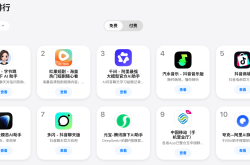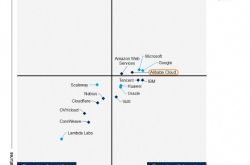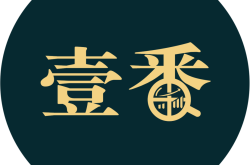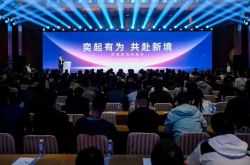High Hopes for the 2026 Extension of Household Appliance "National Subsidies"
![]() 11/25 2025
11/25 2025
![]() 482
482

Since November began, the household appliance sector has been abuzz with opinions from companies, merchants, and economic experts, all advocating for the continuation of the 2026 "national subsidies" policy for household appliances.
Authored by Chang Wei
The 2026 "national subsidies" for household appliances are poised to continue!
Media reports have recently cited Wang Wei, the former director of the Market Economy Research Institute at the Development Research Center of the State Council, emphasizing that boosting consumption is paramount among this year's nine key tasks. As the inaugural year of the "15th Five-Year Plan," 2026 will continue to prioritize stimulating consumption. The consumer goods trade-in subsidies implemented in 2024 and 2025 are expected to extend into 2026.
Several economic experts have further stressed, "We must persist with macroeconomic policy guidance and bolster fiscal support for consumption. Consumers' appetite for upgrading household appliances and digital gadgets remains unsatisfied. Meanwhile, China possesses ample fiscal capacity to sustain this pro-consumer policy."
In their perspective, several factors justify the anticipated continuation of the "national subsidies" for household appliances and other consumer goods. Firstly, the national directive launching the current trade-in initiative in March 2024 explicitly sets a goal for discarded household appliances recovery by 2027, suggesting a roughly three-year span to gauge its effectiveness. Secondly, the 2024 government work report proposed "issuing ultra-long-term special treasury bonds for several consecutive years starting this year," providing financial certainty and reaffirming the government's steadfast commitment and clear strategy.
Despite multiple regions entering an active adjustment phase for household appliance "national subsidies" policies since July 2025, causing market upheaval and challenges for numerous household appliance manufacturers. Several regions have announced temporary suspensions, followed by the introduction of new measures like "time-limited and quantity-limited voucher distribution" and "lottery-based voucher allocation," which have, to some extent, dampened consumer enthusiasm. Consequently, small and medium-sized manufacturers in the household appliance retail sector have faced squeezed survival space during the third quarter of this year, with ongoing pressure and declines in operating performance and profits.
Nevertheless, this market scenario has further intensified expectations and appeals from many household appliance manufacturers for the 2026 continuation of the "national subsidies" policy. Although the national government has not officially confirmed whether the 2026 "national subsidies" for household appliances will persist, multiple policy cues and market trends suggest a high probability of continuation.
Recently, regions like Guangdong, Hubei, and Beijing have unveiled "local version subsidy" policies to stimulate household appliances and other consumer goods, effectively continuing the household appliance "national subsidies" policy. Guangdong recently initiated the "Enjoy a Warm Winter in Guangdong, Tour Guangdong" consumption season, distributing 3.5 billion yuan in consumption vouchers to boost spending across catering, cultural tourism, household appliances, and other sectors, with the policy subsidy period extending until March 2026.
Concurrently, Beijing has released a financial promotion plan for consumption, offering crucial support for sectors such as household appliances, elderly care, and childcare. The plan's core encourages financial institutions to actively cater to consumer finance needs in areas like household appliance trade-ins, green smart home furnishings, and electronic products, participating in merchant promotions through various means, and providing incentives like consumer loans and credit card installment rate discounts.
Moreover, the Hubei Provincial Department of Commerce has issued a notice regarding registration for the 2025 "Jingcai Unlimited, Shopping in Hubei" consumption promotion event, explicitly stating that subsidy vouchers for household appliances, 3C digital products, and other retail goods will be distributed. This further fuels the momentum for activating the year's final consumption market.
It can be said that during the adjustment phase of the household appliance "national subsidies" policy, capable provinces and cities have sequentially introduced "local subsidies" for household appliances. Meanwhile, leading household appliance companies like Haier and Midea, as well as platform merchants such as JD.com, Tmall, and Suning.com, have also launched "enterprise subsidies." Evidently, currently and in the foreseeable future, focusing on market share competition and deep cultivation of market and user needs necessitates a multi-faceted approach involving "national subsidies, local subsidies, and enterprise subsidies" to effectively navigate market turbulence.
In response to industry-wide calls for the 2026 continuation of the household appliance "national subsidies" policy, the household appliance sector anticipates an imminent announcement. However, several manufacturers have also proposed suggestions for the 2026 policy:
Firstly, if the policy is to be implemented year-round, it should maintain operational consistency and avoid arbitrary adjustments that could dampen market enthusiasm and disrupt manufacturers' operational rhythms. Secondly, while the scope of household appliance categories eligible for subsidies and the subsidy amounts can be adjusted, fairness between online and offline channels, as well as equal participation opportunities for manufacturers of all sizes, should be ensured. Thirdly, expediting the disbursement and settlement processes for national subsidy funds advanced by household appliance manufacturers, and even considering direct subsidies to users to bypass manufacturer involvement and curb fraudulent subsidies, would be desirable.
Disclaimer: Unauthorized reprinting of original articles from the Household Appliance Circle is strictly prohibited.







